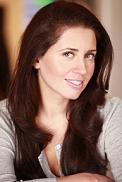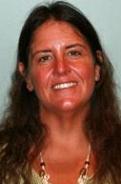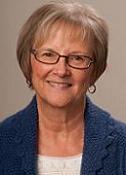Can you recall the moment writing went from hobby to career? Was it a long-term goal made reality or a happy accident?
"Writing was never a hobby for me--and each writer I mention this to stores up a little hate—I made the decision to write approximately six months before I sold my first series." - Daniel Marks, author of Velveteen.

"I’ve always been a writer. In high school, I had my first paid writing job as a teen columnist for the Dayton Daily News, and I’ve been an advertising copywriter for over ten years now. It only really occurred to me that fiction was a possibility after starting my book blog and interacting with authors." - Lenore Appelhans, author of Level 2.

"I sure can. It went from a hobby to a career the first time I got paid! I’m not being crass, I’m being objective. You go from an amateur to a professional as soon as money changes hands. That said, I was committed to being a professional even when I was an amateur. Becoming a paid writer was something at which I worked long and hard. Writing requires such a committed effort in terms of time and application, and getting your writing seen and read requires such all-out hustling, I don’t know how it’s ever a happy accident. But anything’s possible, I guess." - Lili Peloquin, author of The Innocents.
 "If 'career' means that I'm making a living at it, then I definitely recall the moment--it was when my agent sold The Wrap-Up List (which publishes this coming January) to Houghton Mifflin Harcourt. It was a huge moment for me. I'd been laid off from a decade-long academic job teaching creative writing at a local art college. I was on unemployment insurance, looking for work, writing, and struggling to pay my share of the rent. I remember picking up the phone to hear that the book had been sold. My wife and I went out for dinner, and had a toast: 'To keeping on trying.' I'll never forget that." - Steven Arntson, author of The Wrap-Up List.
"If 'career' means that I'm making a living at it, then I definitely recall the moment--it was when my agent sold The Wrap-Up List (which publishes this coming January) to Houghton Mifflin Harcourt. It was a huge moment for me. I'd been laid off from a decade-long academic job teaching creative writing at a local art college. I was on unemployment insurance, looking for work, writing, and struggling to pay my share of the rent. I remember picking up the phone to hear that the book had been sold. My wife and I went out for dinner, and had a toast: 'To keeping on trying.' I'll never forget that." - Steven Arntson, author of The Wrap-Up List."The day I quit my day job. It took five years of writing alongside working, but when it got to where I was going to have two books coming out per year, I just couldn't do it all anymore. It wasn't something I'd planned, I just knew when I came home from work one day and almost had a nervous breakdown, it was time to make the writing a career. Or at least try it, and see how it went. I'm happy to say it will be three years this coming January." - Lisa Schroeder, author of Falling for You.

"I wanted to be a professional writer (not necessarily a novelist) for more than a decade before it became a reality. I like to say I kept writing long after most sane people would have given up and done something else. The fact that I am a novelist today, particularly a YA novelist, is a happy surprise to me, though I wouldn’t call it an accident." - Allen Zadoff, author of Since You Left Me.
"I was a teacher, and my teaching teammate of ten years was retiring. I had wanted to write for years. At that point I thought, why not me? When would I ever get serious about writing if I didn’t start now? I left teaching at the end of that year, and immediately joined SCBWI, went to Fall Conference, and found a critique group. And oh, yes, wrote. A lot!" - Pamela Mingle, author of Kissing Shakespeare.
"Writing fiction has never really been a hobby for me. Every time I've been diligent about writing (whether it was when I was a teenager or adult), it’s been because I wanted to eventually be at a level where I might get published." - Kathleen Peacock, author of Hemlock.
"I was kicked from the gentler, warm world of fanfiction into the harsh world of professional writing by a very polite, not-quite-cease-and-desist-but-definitely-ominous letter from a company that didn't fully appreciate the parodies I was writing about their gameworld. That gave me the prod I needed to step out of my comfort zone and try writing something publishable." - Helen Keeble, autor of Fang Girl.

"My writing went from hobby to career the moment I reached out to another serious YA writer and began to get serious and honest critiques of my work. It was a long-term goal, yes, but I found that key critique partner by a happy accident, wandering around websites where people posted stories for critique." - Susan Vaught, author of Freaks Like Us.
Stop by Thursday to learn when writing became a career for the rest of the authors.







No comments:
Post a Comment